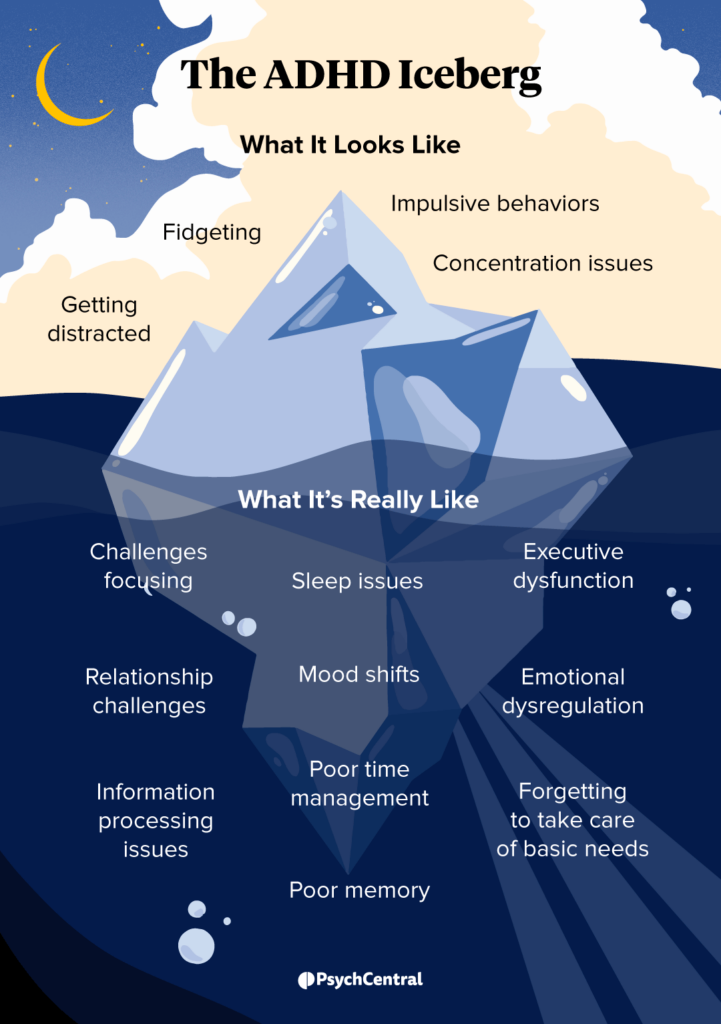ADHD - Definition, Causes, Symptoms, and Intervention support
- Cynthia Yoo
- Nov 18, 2022
- 4 min read
Updated: Jun 12, 2025
Attention-Deficit/Hyperactivity Disorder (ADHD) is a brain-based disorder (also called a "neurodevelopmental disorder") that impacts up to 12% of school-aged children. Children with ADHD have brains that differ in the following ways:
development - children with ADHD have brains that develop up to 30% slower, meaning that a child with ADHD who is 10 years old may have a brain that more closely resembles that of a 7 year old without ADHD;
structure - ADHD impacts various areas of the brain, including the anterior cingulate cortex (responsible for emotion management) and the prefrontal cortex (responsible for thinking processes);
chemicals - children with ADHD have brains that have less dopamine (involved in movement, memory, motivation, and pleasure) and less norepinephrine (involved in alertness, arousal, and attention);
functioning - children with ADHD have brains that show less brain activity in areas responsible for regulating, managing, and controlling oneself.
ADHD is caused by a combination of genetic factors and environmental factors (e.g., early exposure to environmental toxins and early brain injury). ADHD is not the result of poor parenting, too much sugar, excessive screen time, nor children's lack of motivation or intelligence. It is children's brain-based differences that are responsible for their emerging symptoms and struggles.
As a result of brain-based differences, children with ADHD struggle to consistently manage themselves in light of their goals. In other words, ADHD interferes with children's development of self-regulation and executive functioning skills.
Self-regulation - the capacity to manage and direct our attention, thoughts, feelings, urges, and behavior. Regulation involves self-awareness, self-monitoring, and self-control. Children who can self regulate know when and how to implement a variety of strategies to help them: refocus/re-engage their attention when they become distracted, calm themselves when they become overly upset or excited, and refrain from acting on impulses when doing so would interfere with their goals.
Executive functioning - the capacity to use higher order thinking processes to effectively execute goal-directed behavior. Executive functioning involves self-regulation and is made up of smaller skills that include: goal-setting, planning, time-management, organization, motivation, working memory, task initiation, distress tolerance, persistence, problem-solving, cognitive flexibility, and task completion within a given deadline.
These skills are developmental. No one is born with them. While all children need time to practice and learn them, children with ADHD need extra time because of their brain-based differences. It is important that adults support the development of regulation and executive skills in children with ADHD because these skills are critical to their resilience - that is, children's capacity to effectively adapt to challenges and quickly recover from adversity toward wellbeing and success.

For a diagnosis of ADHD, children's symptoms and struggles must appear before the age of 12 and be:
unexpected given a child's level of development - children appear less mature than would be expected for their age (e.g.,hyperactive, impulsive, inattentive, and emotional);
impairing - symptoms interfere with successful functioning;
pervasive - symptoms impact functioning across more than one setting (e.g., school, home, extracurriculars, and friendships);
persistent - symptoms have endured over an extended period of time (for at least 6 months).
There are 3 presentations/subtypes of ADHD that can look very different from one child to the next:
hyperactive-impulsive - involves a feeling of internal restlessness, constant fidgeting, excessive movement or talking, impulsive behavior, becoming easily upset or excited, and/or difficulty managing feelings when overwhelmed;
inattentive - involves feeling scattered/disorganized, difficulty focusing/concentrating, difficulty sustaining attention to complete tasks, being absent-minded/forgetful, procrastinating, and/or missing deadlines;
combined - a combination of hyperactive-impulsive and inattentive traits.
Effective treatment/ interventions for children with ADHD include:
medication to help regulate their brains (e.g., stimulants and non-stimulants);
behavioral support to help promote their developing skills and capacities (e.g., structured environments and accommodations);
counselling support to help them understand their challenges and needs in a realistic way, develop a positive self-concept, learn strategies to manage their symptoms, and gain skills and confidence to advocate for their needs. Counselling can help build children's "islands of competence."
Remember that children with ADHD struggle to do well despite their best intentions and efforts. What they need is parents and teachers who understand the nature of their challenges in order to maintain realistic expectations, provide consistent support and structure, and implement appropriate strategies to maximize their developmental capacities and positive outcomes. When adults are informed, they can support children to become empowered with the self-understanding, skills, confidence, and determination they need to feel good about themselves and do well.
- Written by Cynthia Yoo, Registered Psychologist -
Books on ADHD:
Taking Charge of ADHD: The Complete, Authoritative Guide for Parents - by Russell Barkley
The Survival Guide for Kids with ADHD - by John Taylor
Websites on ADHD:
Childmind Institute - resource for mental health and learning disorders
Understood - resource for learning and attention issues
CanLearn Society - helping children, youth and adults with learning, literacy, attention and related mental health challenges



Comments